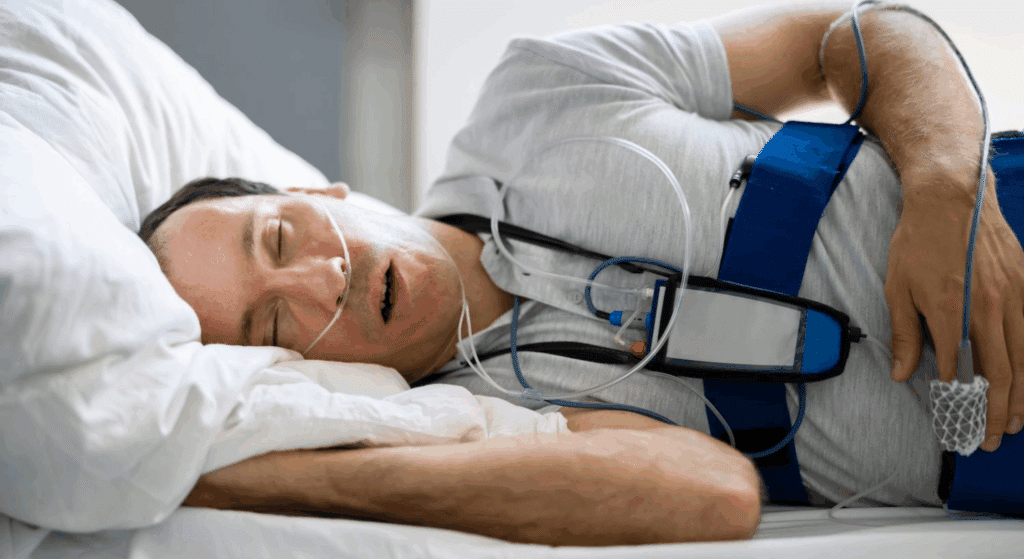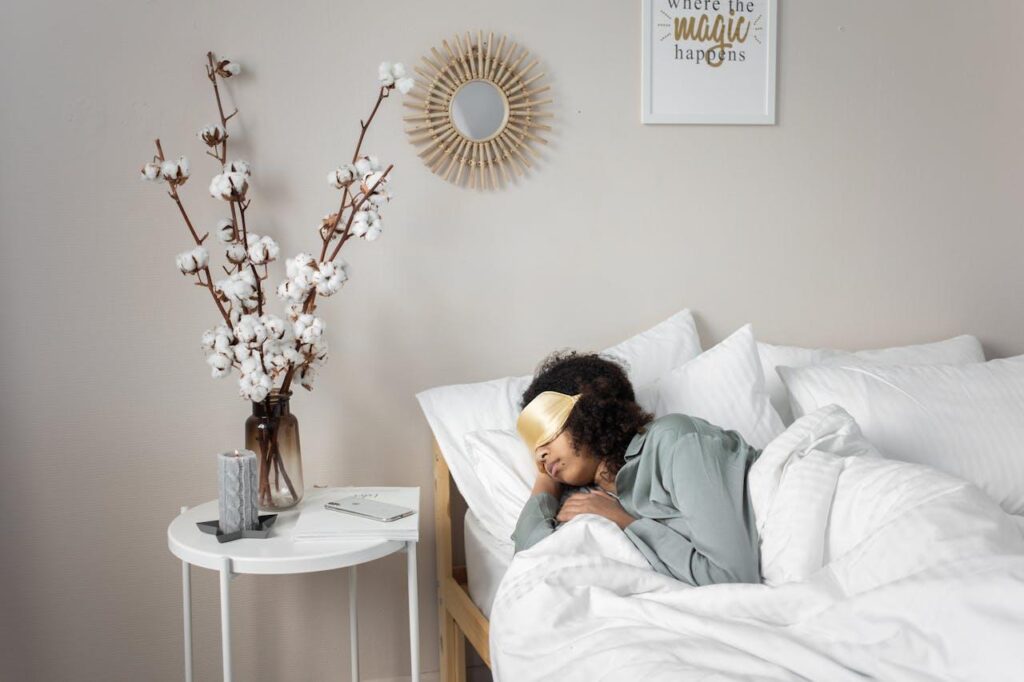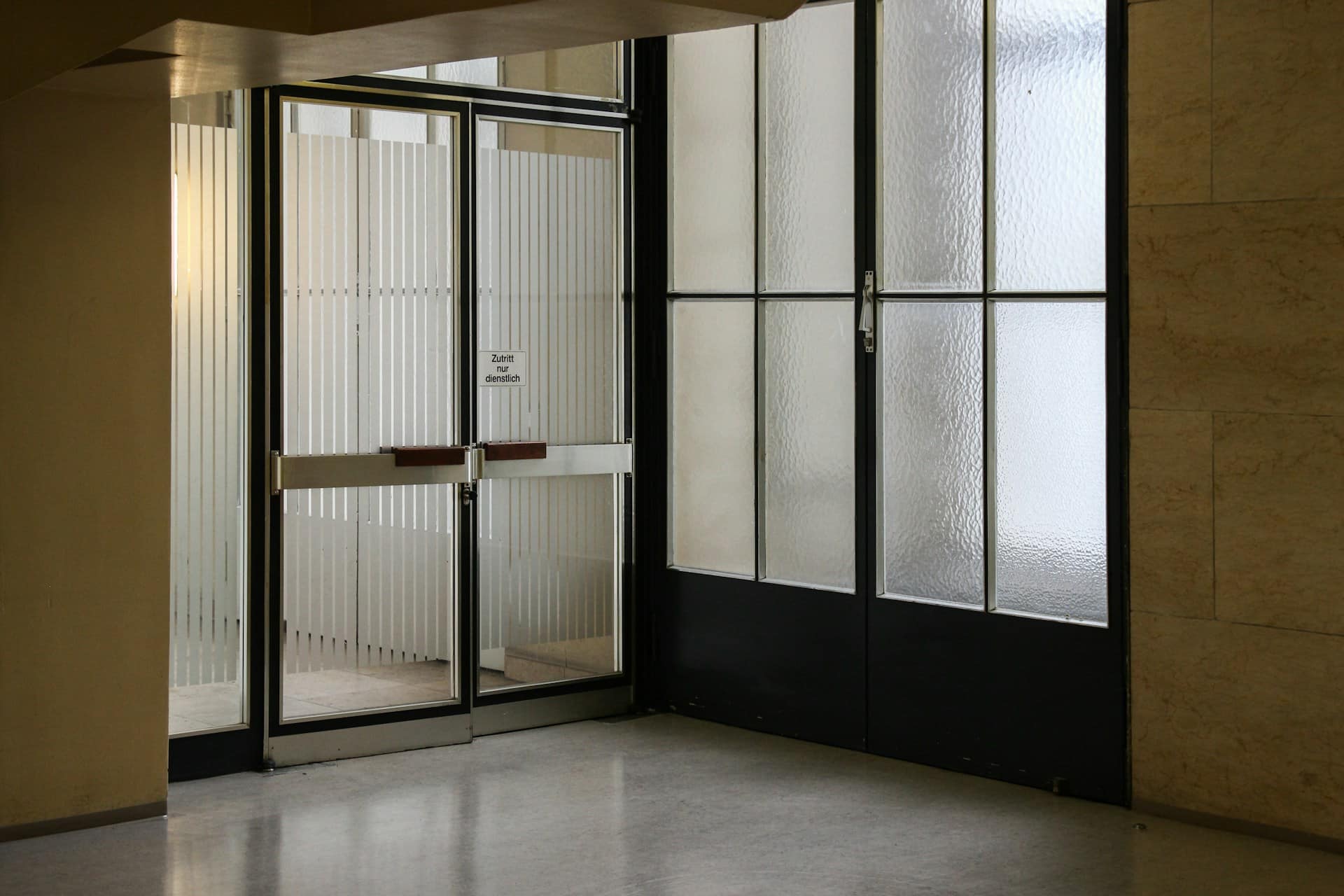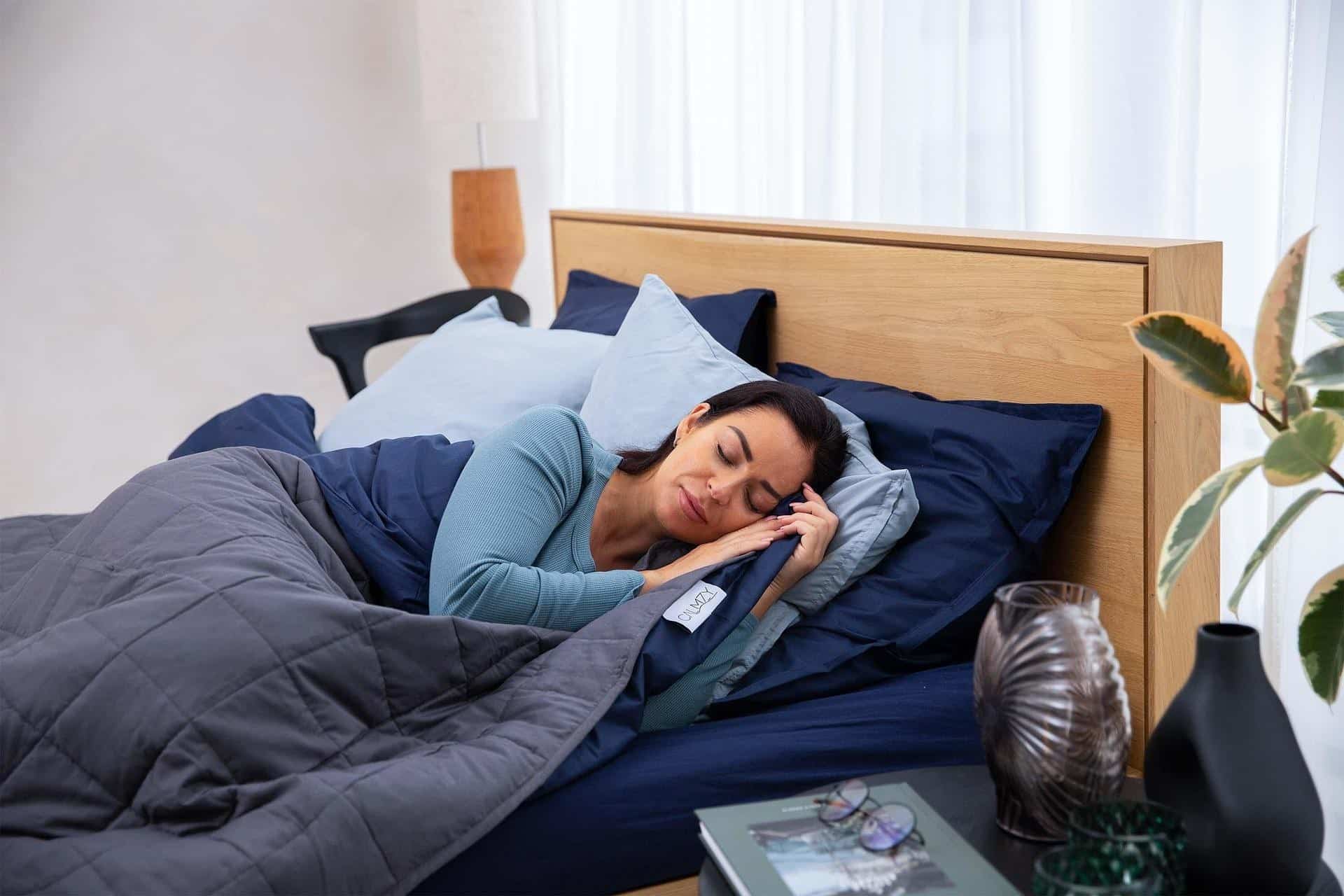I remember lying there, eyes wide open, wondering, What if I can’t sleep during a sleep study? The room was quiet but unfamiliar.
The wires felt strange, and my mind just wouldn’t calm down. If you’re feeling the same way, I get it. It’s hard to sleep when you feel watched or pressured. But here’s the truth: many people have trouble falling asleep during a sleep study, and it’s still okay.
Doctors can get what they need even if you don’t sleep much.
In this blog, I’ll share what helped me relax, what the sleep team actually looks for, and how you can feel more at ease during the study. You’re not alone, and this doesn’t have to be scary.
Why Do You Need a Sleep Study?
A sleep study helps your doctor understand what’s happening with your body while you sleep. If you snore loudly, feel very tired during the day, or wake up often at night, a sleep study can find out why.
It checks for conditions such as sleep apnea, restless legs, and unusual movements. These issues can affect your health, mood, and focus.
The test records your breathing, heart rate, brain activity, and more while you sleep. With that information, your doctor can find out if something is interrupting your rest.
Getting answers through a sleep study is the first step toward feeling better and getting the sleep your body needs. It’s about finding real solutions, not guessing.
How is the Test Completed?
A sleep study is done overnight at a sleep center or clinic. When you arrive, a technologist will welcome you and show you to a private room that’s set up for sleep.
You can bring your own pillow or blanket if it helps you feel more comfortable. The technologist will gently place small sensors on your head, chest, face, and legs. These are painless and placed with a light adhesive.
Here’s what to expect:
- You can move around and sleep in your normal position
- The staff is nearby and can help if you need anything during the night
Once you’re ready, the lights are turned off and the staff monitors you from another room.
They won’t disturb you unless something needs to be fixed.
In the morning, they’ll wake you up, remove the sensors, and you’ll go home. The sleep doctor will look at your results and talk with you about what they mean.
Why You Might Struggle to Sleep During a Sleep Study

It’s actually pretty normal to have a hard time sleeping during a sleep study. There’s even a name for it: the first-night effect. This happens when your brain stays more alert because you’re in a new place. Your body feels like it’s on guard, so it doesn’t relax the way it does at home.
The room might be too quiet or feel colder or warmer than you’re used to. The lights may be dimmed differently. Even little sounds can feel louder.
Then there are the wires and sensors attached to you. They don’t hurt, but they can feel uncomfortable and make it harder to move freely.
On top of that, there’s the pressure to sleep. You might keep thinking, What if I can’t sleep? That kind of worry makes it even harder to rest. It’s a lot for your brain to deal with at once, so trouble sleeping is very common.
What If You Can’t Sleep During a Sleep Study?
If you’re worried that not sleeping will ruin your sleep study, take a breath. It’s okay. You can still get helpful results, even if you only sleep a few hours.
Many people sleep just two to three hours during the study, and that’s often enough to give your doctor the information they need.
Sleep technicians know it can be hard to rest in a new place. They are trained to help you feel more at ease. They can answer questions, adjust the room, or help with anything that makes you uncomfortable.
You can’t fail a sleep study. Any data helps your doctor.
The goal is to learn about your sleep patterns, not to judge how fast or how well you fall asleep. Even a little sleep can still be useful.
How Much Sleep is Actually Needed for a Valid Test
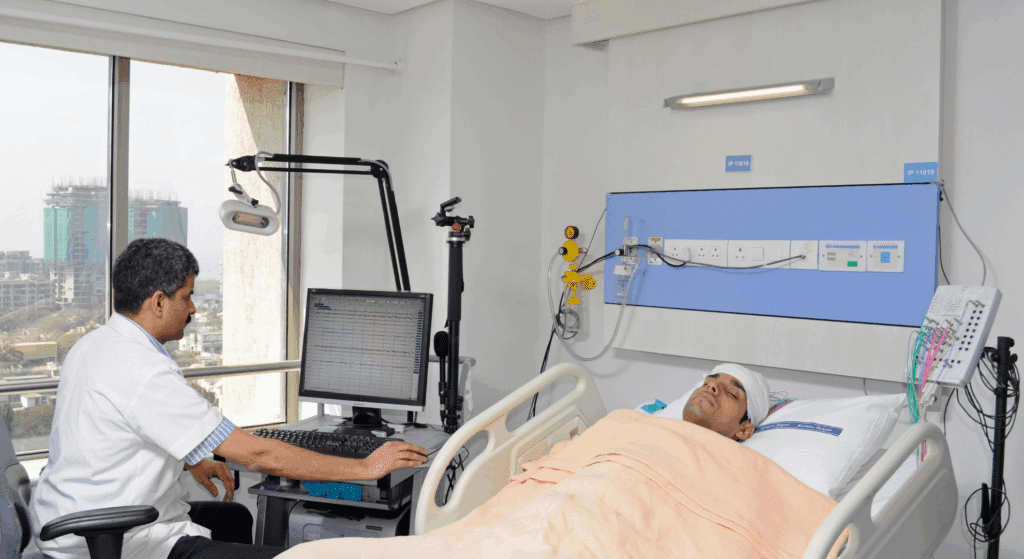
You don’t need a full 8 hours of sleep for your test to count. Sleep studies focus on quality, not quantity.
Technicians look for diagnostic sleep segments, parts of your sleep that show different stages, like light sleep, deep sleep, and REM.
Even just two to three hours can give a clear view of your sleep patterns.
What matters most is the kind of data collected. Things like how often you stop breathing, how your heart rate changes, and how much oxygen is in your blood are all valuable.
These can show signs of sleep disorders even in a short amount of sleep.
If there’s not enough good data from your study, your doctor might recommend repeating the test. Sometimes that means coming back to the lab, but other times it could mean trying a simpler home test that tracks your sleep overnight.
What If You Don’t Sleep at All
If you don’t sleep at all during the study, the technicians will note that no sleep data was recorded. They won’t force anything, and the session will simply be marked as an insufficient study.
Your doctor will look at the report and decide what to do next.
Most of the time, the test will be rescheduled. Your doctor may suggest a mild sleep aid for the next time or offer a home sleep test if that feels more comfortable for you.
Insurance may or may not cover a repeat test, depending on your plan. Some cover it fully, while others may need extra paperwork. Always check with your provider to understand the costs before you reschedule.
What to Do If You Can’t Fall Asleep During the Test
Struggling to fall asleep during a sleep study is more common than you might think. The good news is, there are things you can do in the moment to make it easier.
Here are a few steps that can help if you’re lying awake and starting to worry:
Talk to the Technologist

Let them know how you’re feeling. They can adjust the sensors if something feels uncomfortable. They might also fix the lighting, change the room temperature, or help you get new bedding.
Their job is to make the setting easier for you to rest.
Ask About Medication
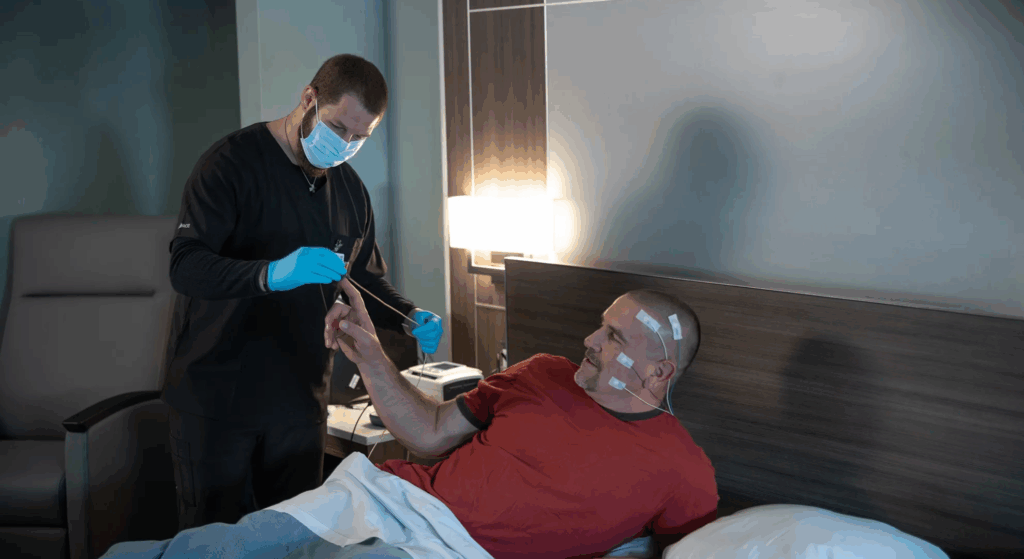
Ask the staff if it’s okay to take something to help you sleep. Melatonin or over-the-counter sleep aids are sometimes allowed. In other cases, your doctor might prescribe a light sedative.
Just know that medication can affect your sleep stages and may be noted in the results.
Try Relaxation Techniques
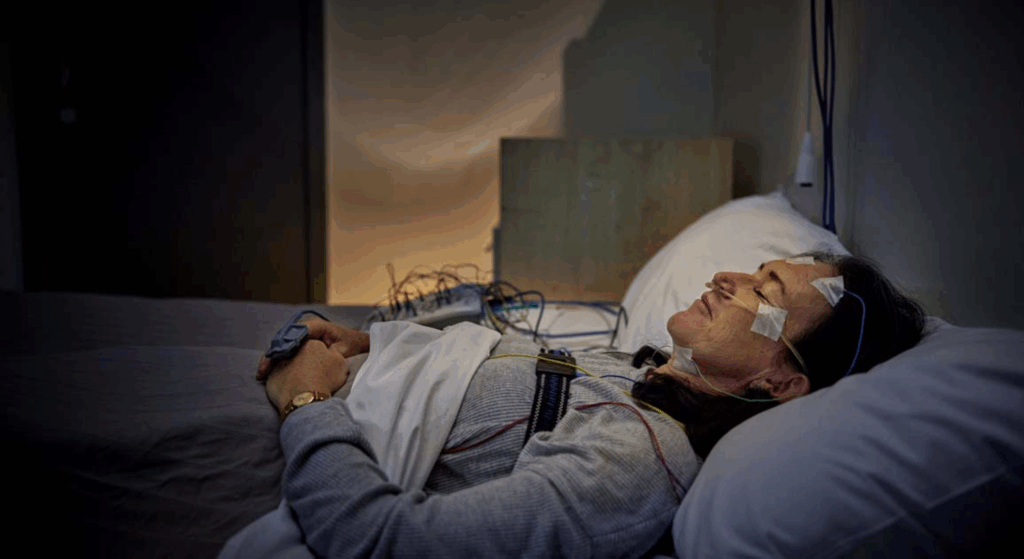
Use calming methods like deep breathing or slowly tensing and relaxing your muscles. Guided imagery, like picturing a peaceful place, can also help your mind slow down.
Try not to watch the clock. That only adds stress and makes it harder to fall asleep.
What You Can and Can’t Do During a Sleep Study
Before the study begins, you’re allowed to do many of the things you normally would during your bedtime routine. But there are a few rules to keep in mind to make sure the test gives accurate results.
The goal is to keep you comfortable while still collecting the information your doctor needs.
Here’s a quick look at what’s usually allowed and what’s not:
| What You Can Do | What You Can’t Do |
|---|---|
| Use the bathroom at any time during the night | Drink alcohol or caffeine before the test |
| Use your phone, read, or watch TV before bed | Use screens or phones after the lights are turned off |
| Bring your own pillow or blanket | Eat heavy meals right before the study |
| Follow your bedtime routine | Skip telling staff about medications you take |
Once the test begins, you’ll be asked to put screens away and settle in for sleep.
If signs of sleep apnea appear during the night, the staff might gently wake you and begin CPAP testing to see how your breathing responds to CPAP. This helps your doctor find the best treatment without needing another study.
How to Prepare the Night Before the Study
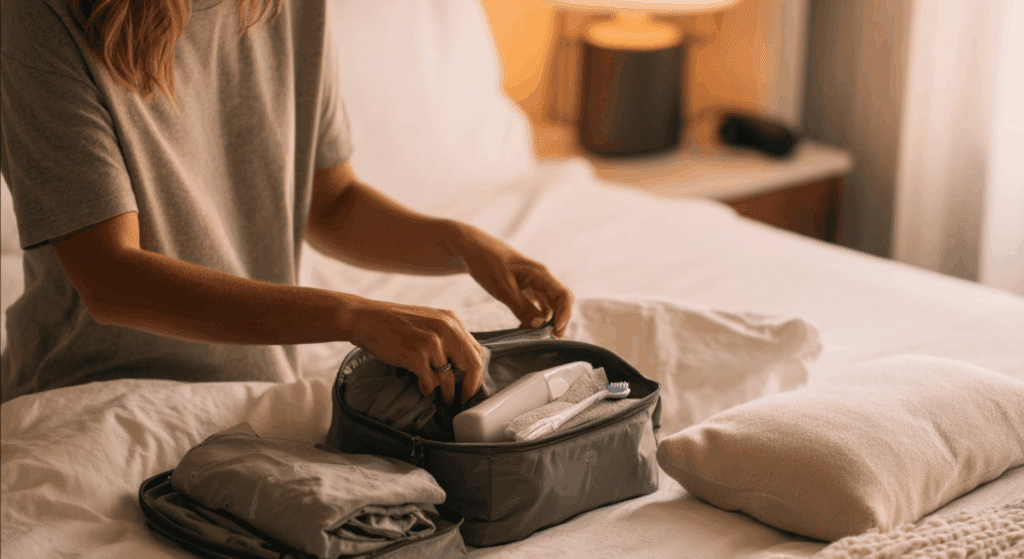
Getting ready the night before a sleep study can help things go more smoothly. Start by keeping your day as normal as possible. Avoid naps so that you’re more likely to feel sleepy at bedtime.
Skip caffeine and alcohol in the afternoon and evening since they can affect your sleep.
Take a shower before you go, and don’t use lotions, oils, or hair products. Clean, dry skin and hair help the sensors stick better. Pack comfortable sleepwear, your toothbrush, and anything else you need for your usual routine.
Try not to stress too much about the test.
It’s okay if you don’t sleep perfectly. Let the staff know about any medications you take or anything that might affect your sleep.
The more they know, the better they can support you during the study.
Emotional Tips for Easing Sleep Anxiety
Feeling anxious before a sleep study is completely normal. These small mindset shifts can help you feel calmer and in control:
- Remind yourself that you’re not being judged on how well you sleep
- Think of the study as a way to get help, not a test to pass
- Focus on the present moment instead of what might go wrong
- Use calming self-talk, such as “It’s okay if I don’t fall asleep right away.”
- Visualize a peaceful place or memory before bedtime
- Accept that some sleep is better than none, and that’s enough
Even if you don’t sleep as well as you hoped, you’re still taking a strong step toward improving your health. Try to go in with a relaxed, open mind.
Real Stories and Technician Insights
Many people feel nervous before their first sleep study, but most find it easier than they expected.
One patient from the Cleveland Clinic shared, “I only slept for a few hours, but they still found what they needed to treat my sleep apnea. I was surprised by how helpful the staff was”. This is a common experience. Even limited sleep can still provide enough data for a diagnosis.
Technicians are trained to help you feel at ease. They often adjust wires, dim lights, or answer questions to reduce stress.
One tech explained, “We don’t expect perfect sleep. We’re here to support and guide you through the night.”
You can read more personal experiences and professional advice from trusted sources such as Johns Hopkins Medicine and the American Academy of Sleep Medicine. Their insights can help you feel more prepared.
Conclusion
When I first asked myself, “What if I can’t sleep during a sleep study?” I felt unsure and a little stressed.
But now I know the truth: Perfection isn’t the goal. Even a few hours of sleep can give doctors what they need.
I realized it’s not about passing or failing. It’s about getting real answers and taking care of my health.
Now that you’ve read this, I hope you feel more prepared and less worried. You’ve learned what to expect, what’s normal, and what to do if sleep doesn’t come easily. Keep this in mind: showing up matters more than sleeping perfectly.
Still curious or have more questions? Check out the rest of the blogs on the website for helpful, easy-to-understand info that can guide you through every step.


